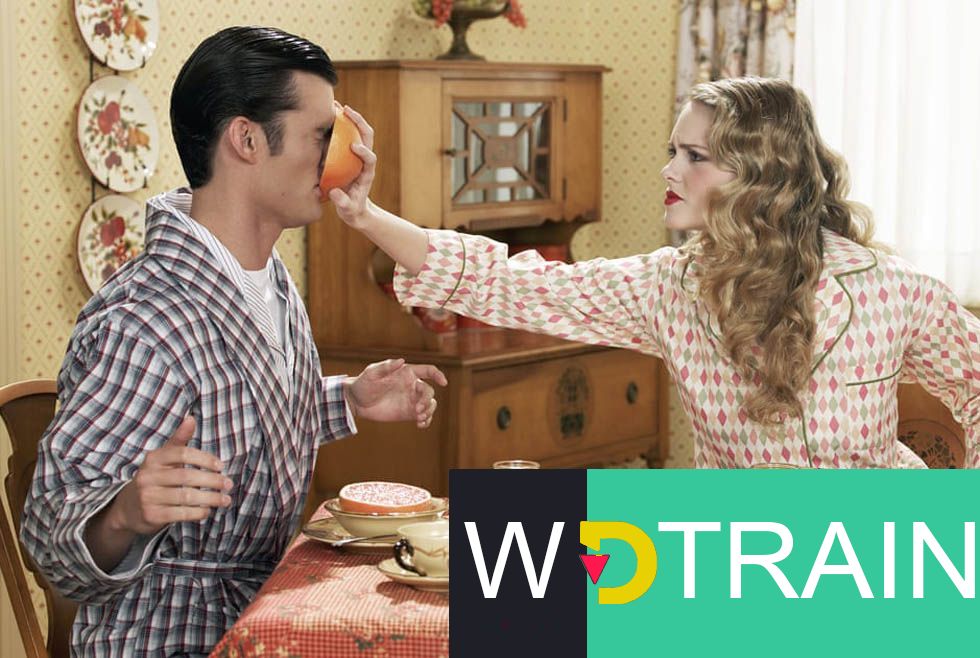Susanna Abse is the wedding counsellor’s marriage counsellor – 30 years in observe giving her peerless insights into the challenges {couples} face with out making any dent in her curiosity and originality. This serene, witty 65-year-old is exacting however non-judgmental; I think about you’d really feel in a position to say completely something in entrance of her, except it was bullshit. You’d belief her together with your marriage, however you’d wish to take your A-game.
Abse can’t start to estimate what number of {couples} she’s seen since her first in 1986, however places it at tens of hundreds of hours. She has labored with each sort of couple, from those who “bang their heads collectively and shout and arise and stroll out” (she calls these “doll’s home” {couples} in her guide – individuals who break issues with none sense of consequence), to those who assume there’s by no means been something incorrect, and may’t perceive why they’ve all of the sudden obtained points.
She sometimes sees a pair weekly or biweekly. Her work is instinctive: a pair will proceed to satisfy together with her for so long as it takes. “I completely by no means know whether or not a pair will separate or not,” she says.
Submit-Covid, there was an increase within the variety of {couples} in search of remedy, but it surely’s maybe not as dramatic as you would possibly count on. If the sphere is booming, it’s as a result of millennials, and {couples} even youthful, are in search of assist earlier of their relationship – at a degree when older generations would have simply referred to as it quits. The rise in all probability isn’t harm by the recognition of exhibits such because the BBC’s {Couples} Remedy, which sheds a light-weight on this normally hidden course of.
When she began practising, “there was a rule that you simply by no means requested a query, as a psychoanalytic practitioner”, she says. “Now, most therapists are rather more interactive and can ask questions instantly about what the issue is.” Abse’s strategy is distinctive in that “I by no means can see an individual with out asking about all of the individuals who’ve been round them, or not round them. They’re all the time within the context of a relationship with different folks, or a lacking relationship with anyone.”
Within the Nineties, the work of the celebrated American psychologist John Gottman was modern in marriage circles: revealed in 1983, the “4 horsemen” concept was that you possibly can predict which {couples} would fall other than 4 pink flags: criticism, defensiveness, contempt and stonewalling. That’s fallen out of trend, too, and Abse says “Numerous {couples} will probably be contemptuous at moments, or stonewall at moments. It’s a defence, isn’t it? Or a retaliation. My job is to hint it again to its origins, when it began between the couple, after which additional again – what the which means of it’s for them as people in relation to their very own childhood expertise.”
Abse doesn’t do guidelines. So let’s simply name this checklist eight important truths for a cheerful relationship.
Remember that having kids will change your relationship in a method which you can’t forestall
It’s good to battle
Normally, if a pair by no means argues, it’s as a result of “issues have been parked”, says Abse. “When you open issues up, truly there’s various feeling there, and upset – there’s simply been smoothing over and overlaying up.” Broadly talking, it militates in opposition to intimacy, in the event you gained’t present your self to 1 one other. In Abse’s guide, Inform Me the Reality About Love, she describes a “babes within the wooden” couple, two individuals who have so strenuously averted all battle with one another that they flip their anger outwards and are in fixed fight with neighbours, household, buddies. Alternatively, avoidant {couples} can discover that their kids turn into the “repository for bother. The couple are very joined and cheap and good. After which they’ve a baby who’s beating folks up, doing medication, appearing out. All the problem between them has obtained projected on to the kid.”
Cease blaming
“I typically make the joke: ‘I’ve listened fastidiously to all of the submissions and I pronounce … ’” says Abse. “To say, look, the 2 of you are feeling that this can be a courtroom, and also you’re giving me proof. There’s a vulnerability there, that I’ll decide them; that one has finished one thing heinous and is within the doghouse, and the opposite’s within the clear. It’s not like that in any respect. You’ve cooked this up collectively.”
One instance of the place individuals are in search of adjudication is closeness. “One individual needs to get nearer, and the opposite individual finds methods to distance,” she says, they usually would possibly assume a therapist can inform them who’s in the appropriate. However there’s no proper or incorrect as a result of they’ve created this case collectively. Normally, there’s a system there, what household remedy used to name a distance regulation system. There’s an unconscious collusion to keep up the space between them, even when just one individual’s complaining about it.”
Use ‘I really feel … ’ fairly than ‘You all the time … ’
That is the previous noticed about marital battle, that it’s best to use “I” phrases fairly than accusations. It’s price inspecting why the accusation is less complicated: you make your self very susceptible if you describe your individual emotions, notably in the event that they’re fearful or unhappy. “That is in all probability not simply between {couples}, this can be a illness of people,” says Abse, “that we’re so apprehensive about our vulnerability that we’re aggressive in an effort to cowl it up. Typically it’s not secure to point out folks how fragile you might be.” It’s higher to point out your hand: “Should you really feel anxious about speaking to anyone, don’t simply inform them the factor, inform them you’re apprehensive about telling them the factor. Sign that it’s tough for you.”
Don’t have kids (properly, do in the event you should)
One message that comes throughout in so many – possibly all – relationship difficulties is that what drew the couple collectively within the first place was not a shared love of mountain climbing or an identical training, however mirroring dynamics of their childhood that they’re hoping to recreate, or overcome, or each, or possibly they don’t know which.
“These expectations that you simply’re going to satisfy a loving, parental determine that you simply longed for in your childhood – {couples} can do this for each other, however this turns into not possible if you throw kids into the equation. As a result of then there’s an actual toddler there, and there isn’t rather a lot left over for mothering and parenting one another. It turns into a battle of wants.”
Relationship satisfaction sometimes crashes after kids. Nevertheless, “a number of {couples} do develop and mature and deepen their intimacy through having kids”. So possibly the rule is, do it or don’t, simply remember that it’s going to change your relationship in a method which you can’t forestall, and nor are you able to get forward of how that change will make you are feeling.
Have intercourse (or don’t, however not less than discover if you cease)
“There are a whole lot of nonsexual {couples},” Abse says, deploying the non-prescriptive tone that’s her trademark. “Clearly that’s attainable. However in the event you’re in your 20s, 30s, 40s and possibly as much as your mid-50s, and there’s completely no intercourse, there’s a danger that it’ll result in the tip of the connection. Folks need the discharge, they need the intimacy, it’s an necessary a part of life.”
In case your intercourse life flags, don’t simply assume it’ll decide again up; nervousness builds round it, and with it the power to speak. “You see the {couples} who’ve not had intercourse for 25 years, who come and say ‘Are you able to assist us?’, once they’re of their early 60s. In all probability not.
Threats of leaving are a nasty concept
“They are surely corrosive,” Abse says. “They basically undermine a way of safety, and also you want that so as to have the ability to have distinction and battle and backbone.”
Don’t label one another
Once I was younger, I used to seek out it humorous that everybody thought their mum had histrionic character dysfunction and their dad was on the spectrum. Now, everybody thinks their partner has borderline character dysfunction or ADHD.
“I perceive it with kids – you need to label them in an effort to get assets. However I don’t assume it’s useful in any respect with adults,” says Abse. “I’ve some sufferers who’ve obtained autistic options, however so what? You continue to must determine it out. Diagnosing adults with ADHD is bonkers. Simply name it nervousness.”
Be courageous
“So typically, {couples} come and assume, ‘We’re in {couples} remedy. It’s throughout’. They need it to be good, they need you to be good, they need them to be good. They wish to really feel secure – fairly understandably. It’s a scary factor.” And the looming worry, in fact, is that the endpoint is separation. However the technique of critically inspecting any relationship is “so typically about psychic separation, as a result of they’re caught up in a dynamic wherein they’ve obtained very confused. They’re projecting on to one another, they’re confused about who’s who. It all the time entails separation by way of anyone once more. It’s only a query of whether or not it’s an actual separation.” It takes braveness.
Abse’s guide is devoted to her husband of 40 years. It reads: “To Paul, my fellow truth-seeker.” It’s true, she says, “that’s what’s happening. He thinks he’s obtained the reality, and I do know I’ve.”
Inform Me the Reality About Love: 13 Tales from the Therapist’s Sofa by Susanna Abse is revealed by Ebury (£16.99). The Guardian masterclass, Falling and staying in love: an interactive workshop with Susanna Abse, takes place on 15 June, 6.30pm






